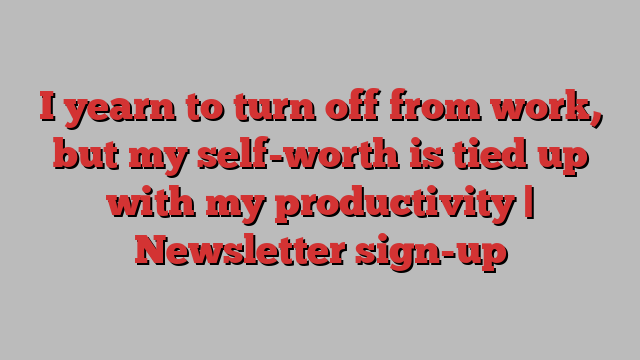
After years spent chasing dreams and small children, I have forgotten how to relax.
My childhood summers were spent reading books under trees, hanging out with cousins and watching TV, but my adult holidays are spent checking emails and scribbling ideas for stories. I cannot make myself stop.
“So you’re not working this week, but you’ve pitched a piece?” asks my sister. “Yes,” I reply, tentatively. “I’d say that’s a fail, then.”
She is right, of course. I light candles, sit in the bath, turn off my phone: nothing helps. All I think about is the long list of useful things I could be doing instead. Eventually, I switch my phone back on and scroll through more emails.
Then, my best ideas come to me. Stories rise to the surface of my brain when I least expect them, and I have to find a pen, a phone, a computer, some way to note down this perceived brilliance before it flees.
My friend, the author AA Dhand, tells me it’s the “curse of Asian excellence”: that we’re raised to be workaholics, that it is how we get our self-worth. He’s a pharmacist, screenwriter, and has several crime novels to his name, and all while raising two small boys with his wife. I have a lot of catching up to do.
The protagonist in my novel The Khan lives by the creed “be twice as good as men and four times as good as white men”. And while it has served her well, it is taking its toll on me. But then, I’m not a crime boss, I’m a freelance writer, and one with three small children, who have six weeks off school for the summer.
I have made myself a promise that this year will be different. I will be emotionally present: we’ll bake things and make crafts. (Did I mention that it’s a whole six weeks?)
In a world where women are told we can have it all, and be whatever we want, I have learned there is also a price we pay. My work doesn’t really end when I step away from my laptop; it just switches to the unpaid kind: folding laundry, pouring endless glasses of squash, and listening to a constant barrage of “look at me, look at me, look at me”, until my eyes feel they might just roll back into my head.
My children are high-functioning balls of energy, and if I’m to work, I might as well get paid for it. So I regularly take myself off to the safety of my study, where someone will occasionally email me to say “well done” or “good job” and no one will ever ask for orange squash.
When you find something you love to do, all you do is work. The boundaries between work and life blur and you can’t stop, because who wants to stop doing what they love?
But there are limits. I no longer write on the train on the way to literature festivals because I found myself burning out, and I would end up with a migraine. It taught me that, even though I love my work, it is still work, and that means I still need to switch off. But how to do that in a world of constant connectivity?
If I had a cool few million in the bank, would I relax then? Or would I be sitting by the French riviera wearing a wide-brimmed hat, feverishly replying to emails and bashing out “THE END”?
I yearn for endless summers of putting my feet up and shooting the breeze with friends, but it feels like some distant place that I can’t quite get to.
I know that I need to disentangle my self-worth from my productivity levels, but the thing with chasing dreams is that they are always slightly out of reach. The cure to most addictions is to stay clear of the drug of choice – but when that drug is work, it’s not always possible. Anyone know where my boundaries went? They can’t have gone far.